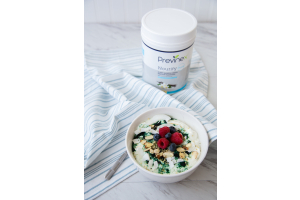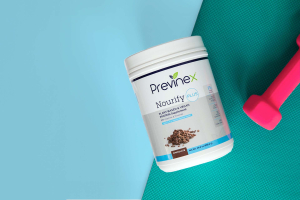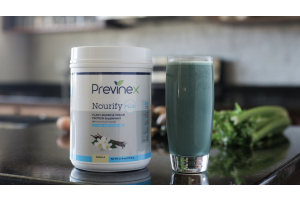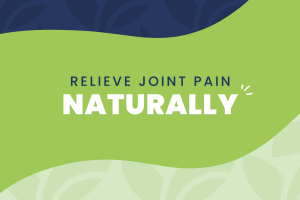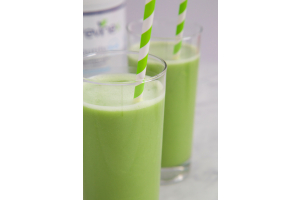
Protein is one of the nutrients our bodies need to function properly. Made up of amino acids (building blocks), protein helps us grow and repair cells, but it also helps our bodies fuel energy, carry oxygen through our blood, and it makes antibodies that help us fight infection. So let’s dig into all things protein!
Types of Protein
A big benefit of protein is that it comes in all shapes and sizes—it’s not just steak or chicken. Of course, those are great sources of protein and other nutrients, but you can also derive protein from high-quality cheese, eggs, beans, legumes, nuts, and so much more. While there’s a wide variety of protein sources, it’s important to note that the nutritional value of those proteins do change. The nutritional value of protein is measured by the number of amino acids present in the protein source—this is the difference between complete and incomplete proteins.
Complete Proteins
There are 20 amino acids, nine of which are essential. A complete protein is simply a protein source that contains all nine essential amino acids. Examples of complete proteins are:
- Poultry
- Fish
- Eggs
- Beef
- Pork
- Dairy
- Whole soy sources (tofu, edamame, etc)
Incomplete Proteins
While incomplete proteins don’t have all nine essential amino acids, they are still necessary and have nutritional value! These tend to be more vegetarian and vegan-friendly options. Examples of incomplete proteins are:
- Legumes (green peas, lentils, beans)
- Nuts
- Seeds
- Whole grains
- Vegetables
How Much Protein Do I Need?
To put it simply, the recommended dietary allowance (RDA) of protein is 0.36 grams per pound of body weight. So if you’re a non-pregnant 45-year-old female, weigh 140 pounds, and are active, your RDA of protein would be approximately 51 grams per day according to this protein calculator. However, it’s important to note that this is a basic requirement. If you’re actively trying to build muscle mass, maintain muscle mass while losing fat, are exercising intensely or actively trying to lose weight, you may need more than the RDA of protein. We recommend consulting with a doctor or dietary professional to confirm the recommended amount of protein you should be having based on your individual needs.
Protein Synthesis
As we’ve discussed, getting enough protein in your diet is important for not just building muscle mass, but for your overall health. Muscle protein synthesis is the process of converting amino acids into skeletal muscle, and is the overall process of creating protein molecules. If building muscle mass is your primary goal, you may benefit from both increasing your daily protein intake, and from a muscle health supplement like Muscle Health PLUS®, which contains ingredients specifically designed (and scientifically proven) to aid in protein synthesis in your body.
Protein Powder
Of course, not all of your protein needs to come strictly from food. You can also invest in a good protein powder or supplement! But remember—protein powder will not be quite as nutrient-dense as protein-rich foods, but it can be used as a helpful supplement.
A good option for protein powder is Nourify PLUS®. It’s a plant-based protein powder that is completely vegan, gluten free, dairy free, soy free, preservative free, and all-natural. Beyond that, the pea protein and brown rice protein used in Nourify are complete proteins, meaning you’re getting all nine essential amino acids!
Nourify offers:
- 10-20g of vegan protein per serving (depending on whether you use 1 or 2 scoops)
- 500 million to 1 billion probiotics
- Digestive enzymes
- BCAAs (branched-chain amino acids)
- No artificial flavors
- Chocolate and vanilla options
Nourify PLUS® is versatile, tasty, and can be used in a whole variety of healthy recipes!
The Bottom Line
What this protein conversation comes down to is that your body needs protein to perform well, and there are a variety of ways to get that protein. Balance is key, and adhering to the recommended daily allowance will help you stay on track. But talk to your health professionals to really narrow down what the best options for you and your body are! Eat nutrient-dense, protein-rich foods, supplement with a protein powder when you need to, and get your body moving.

